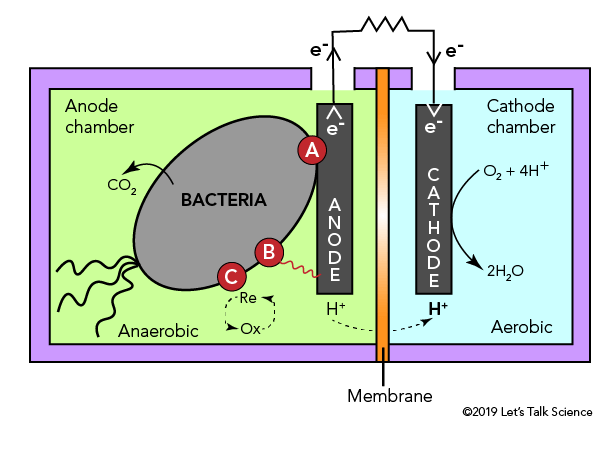Microbial Fuel Cells
- A microbial fuel cell (MFC) is a bio-electrochemical device that harnesses the power of respiring microbes to convert organic substrates directly into electrical energy.
- At its core, the MFC is a fuel cell, which transforms chemical energy into electricity using oxidation-reduction reactions.
- The key difference of course is in the name, microbial fuel cells rely on living biocatalysts to facilitate the movement of electrons throughout their systems instead of the traditional chemically catalyzed oxidation of fuel at the anode and reduction at the cathode.

Current and future uses for Microbial fuel cells
- Wastewater treatment– Microbial Fuel Cells can be utilized to treat sewage water. MFCs can kill the bacteria found in sewage
- Sea Water Desalination– Microbial Fuel Cells are capable of producing energy but at the level where we can remove salt from a large amount of water. However, there is potential for such a process to be accomplished, by using an adapted microbial fuel cell that would make the desalination of seawater possible without external electrical sources.
- Hydrogen Production– With the help of a Microbial fuel cell, hydrogen can be produced. This process does require an external source of power to convert the bacteria into carbon dioxide and hydrogen gas.
